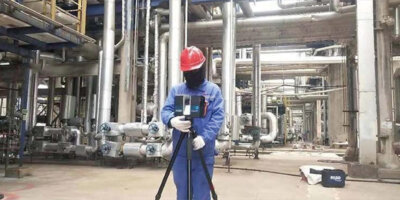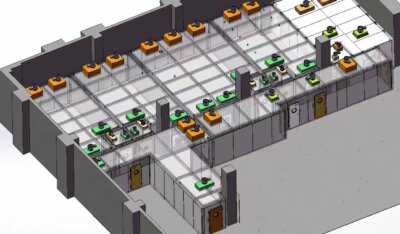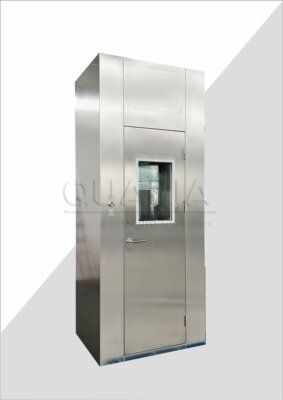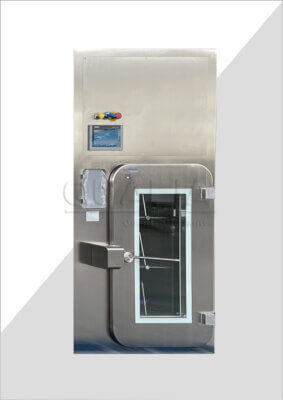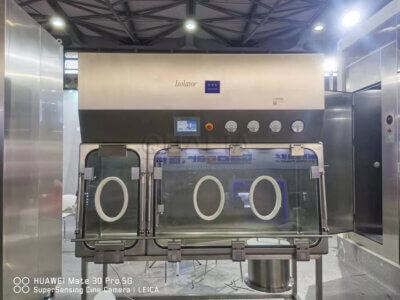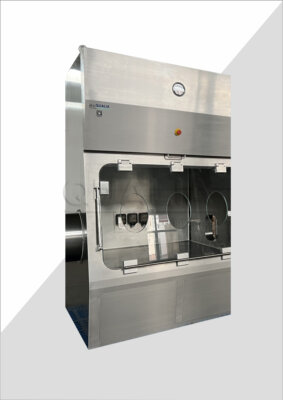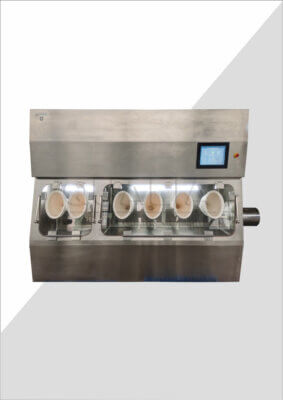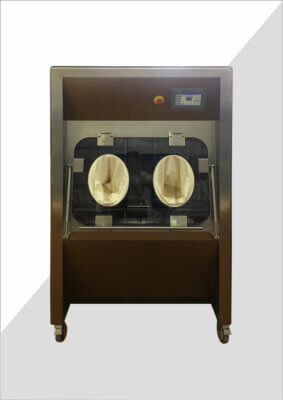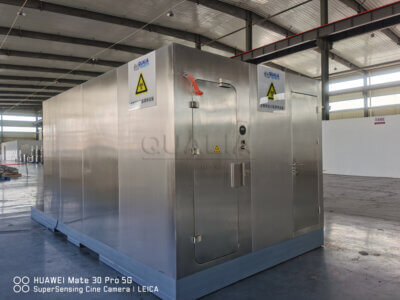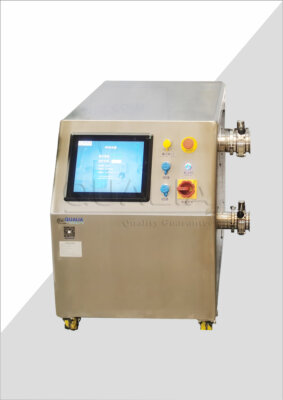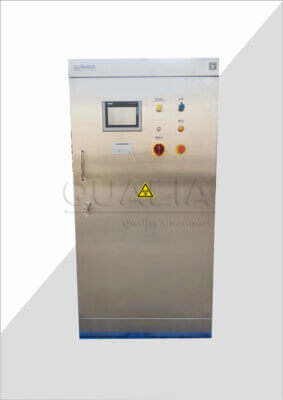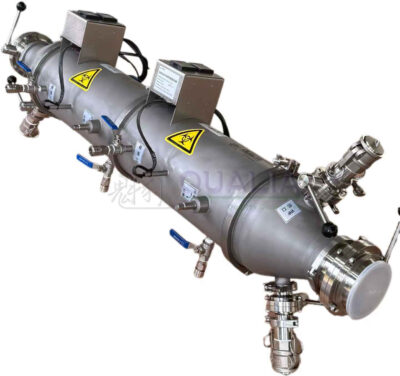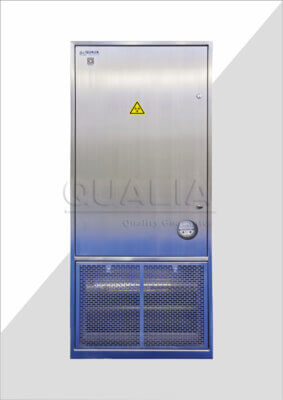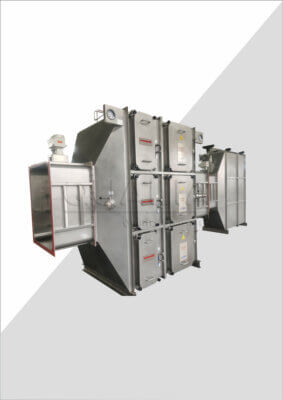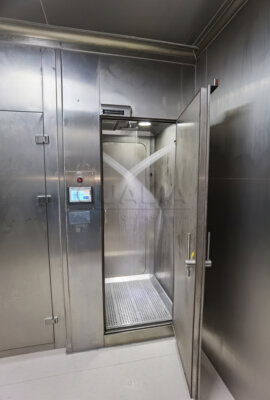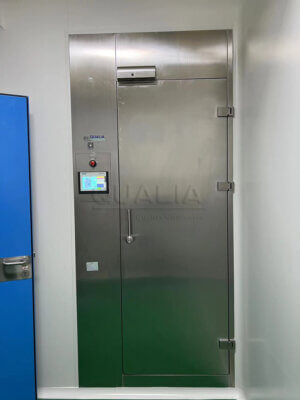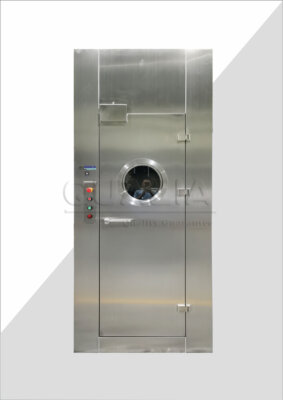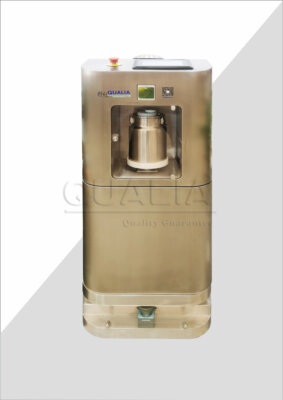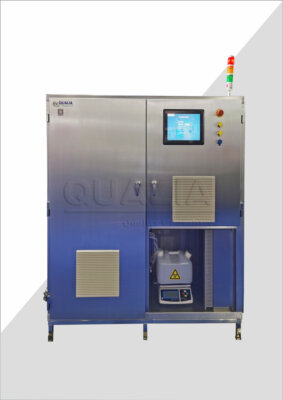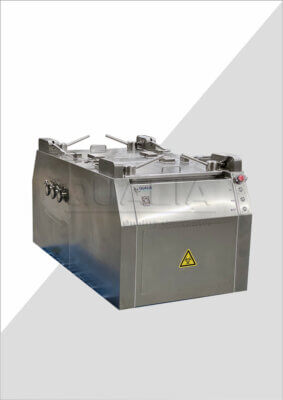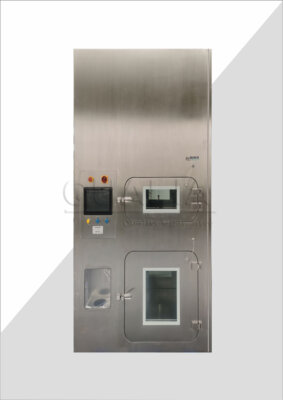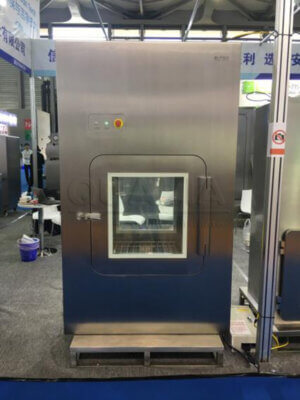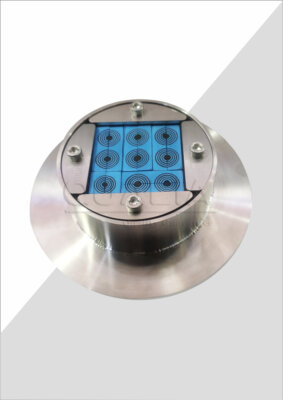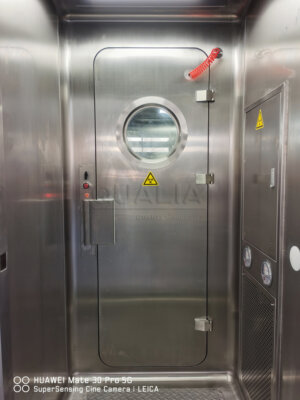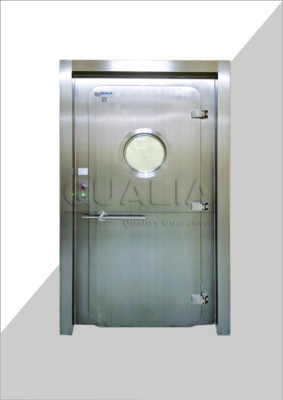Biosafety cabinets are essential equipment in laboratories working with potentially hazardous biological materials. As the need for proper training and certification in biosafety cabinet usage grows, hands-on workshops have become increasingly important for laboratory professionals. These workshops provide invaluable practical experience and knowledge that can't be gained through theoretical learning alone.
In this article, we'll explore the world of biosafety cabinet hands-on workshops, discussing their importance, what they typically cover, and how they can benefit laboratory workers and institutions. We'll also look at some of the top programs available and what you can expect from attending one of these workshops.
Hands-on biosafety cabinet workshops are intensive training programs that combine theoretical knowledge with practical experience. These workshops are designed to give participants a comprehensive understanding of biosafety cabinet operation, maintenance, and certification procedures. By attending these workshops, laboratory professionals can gain the skills and confidence needed to work safely and effectively with biosafety cabinets in their own facilities.
Proper training in biosafety cabinet usage is crucial for maintaining a safe laboratory environment and ensuring the integrity of research and diagnostic procedures.
Let's dive deeper into the world of biosafety cabinet hands-on workshops and explore why they're so important for laboratory professionals.
Why Are Hands-On Biosafety Cabinet Workshops Essential?
The importance of hands-on training in biosafety cabinet usage cannot be overstated. While theoretical knowledge is valuable, it's the practical experience that truly prepares laboratory workers for the challenges they may face in their day-to-day work. But why exactly are these workshops so essential?
Hands-on biosafety cabinet workshops provide participants with the opportunity to work directly with the equipment they'll be using in their laboratories. This practical experience allows them to familiarize themselves with the various components, controls, and safety features of biosafety cabinets in a controlled environment.
Moreover, these workshops often simulate real-world scenarios that laboratory workers might encounter, helping them develop problem-solving skills and confidence in handling unexpected situations.
According to the Centers for Disease Control and Prevention (CDC), proper training and certification in biosafety cabinet usage are critical components of a comprehensive laboratory safety program.
Here's a brief overview of the benefits of hands-on biosafety cabinet workshops:
| Benefit | Description |
|---|---|
| Practical Experience | Participants gain hands-on experience with actual biosafety cabinets |
| Safety Skills | Learn proper safety protocols and procedures |
| Troubleshooting | Develop skills to identify and resolve common issues |
| Certification Preparation | Prepare for biosafety cabinet certification exams |
| Networking | Connect with other professionals in the field |
Hands-on workshops provide an invaluable opportunity for laboratory professionals to enhance their skills and knowledge in a practical, immersive environment. But what exactly do these workshops cover?
What Topics Are Typically Covered in Biosafety Cabinet Workshops?
Biosafety cabinet hands-on workshops cover a wide range of topics related to the operation, maintenance, and certification of these essential laboratory equipment. The curriculum is designed to provide participants with a comprehensive understanding of biosafety cabinets and their role in maintaining a safe laboratory environment.
Typically, these workshops cover topics such as biosafety cabinet construction, proper usage techniques, airflow testing, HEPA filter integrity testing, decontamination procedures, and troubleshooting common issues. Participants also learn about relevant safety standards and regulations, including NSF/ANSI 49, which sets the benchmark for biosafety cabinet design and performance.
The Eagleson Institute's Global Biosafety Cabinet Certification Program, for example, offers a two-week hands-on workshop that covers all aspects of Class II Type A and Type B Biosafety Cabinets.
Here's a brief overview of common topics covered in biosafety cabinet workshops:
| Topic | Description |
|---|---|
| Cabinet Construction | Understanding the components and design of biosafety cabinets |
| Proper Usage | Techniques for working safely within the cabinet |
| Airflow Testing | Methods for testing and verifying proper airflow |
| HEPA Filter Testing | Procedures for testing HEPA filter integrity |
| Decontamination | Proper methods for decontaminating biosafety cabinets |
| Troubleshooting | Identifying and resolving common issues |
These comprehensive workshops ensure that participants gain a thorough understanding of biosafety cabinet operation and maintenance. But who can benefit most from attending these workshops?
Who Should Attend Biosafety Cabinet Hands-On Workshops?
Biosafety cabinet hands-on workshops are beneficial for a wide range of laboratory professionals. These workshops are designed to cater to individuals at various stages of their careers, from those just starting out to experienced professionals looking to update their skills or prepare for certification exams.
Laboratory technicians, research scientists, biosafety officers, and facility managers can all benefit from the practical knowledge and skills gained in these workshops. Even those who have been working with biosafety cabinets for years can often learn new techniques or gain insights into the latest safety standards and best practices.
The NSF International Biosafety Cabinet Certification program recommends that all individuals involved in the use, maintenance, or certification of biosafety cabinets undergo regular training and recertification.
Here's a breakdown of who can benefit from attending biosafety cabinet workshops:
| Profession | Benefits |
|---|---|
| Laboratory Technicians | Gain practical skills for daily cabinet use |
| Research Scientists | Learn proper techniques to ensure experiment integrity |
| Biosafety Officers | Update knowledge on latest safety standards |
| Facility Managers | Understand maintenance and certification requirements |
| Equipment Certifiers | Prepare for certification exams |
Regardless of your role in the laboratory, if you work with or around biosafety cabinets, attending a hands-on workshop can significantly enhance your skills and knowledge. But what can you expect from these workshops?
What Can You Expect from a Biosafety Cabinet Hands-On Workshop?
Attending a biosafety cabinet hands-on workshop is an immersive experience that combines classroom instruction with practical, hands-on training. These workshops are typically intensive, often lasting several days to a week or more, depending on the depth of coverage and certification requirements.
Participants can expect to spend a significant portion of their time working directly with biosafety cabinets, performing various tests and procedures under the guidance of experienced instructors. These hands-on sessions are typically complemented by classroom instruction, where participants learn about the theoretical aspects of biosafety cabinet operation and relevant safety standards.
The Advanced Biosafety Cabinet Certification Course offered by Allometrics, for example, provides a weeklong training program with individualized hands-on instruction led by NSF 49-accredited engineers.
Here's what you can typically expect from a biosafety cabinet hands-on workshop:
| Activity | Description |
|---|---|
| Classroom Instruction | Lectures on biosafety cabinet theory and standards |
| Hands-On Practice | Direct experience working with biosafety cabinets |
| Simulated Scenarios | Practice troubleshooting common issues |
| Group Discussions | Share experiences and learn from peers |
| Assessment | Regular quizzes or exams to reinforce learning |
These workshops provide a comprehensive learning experience that prepares participants for the real-world challenges of working with biosafety cabinets. But how do you choose the right workshop for your needs?
How to Choose the Right Biosafety Cabinet Workshop?
Choosing the right biosafety cabinet workshop is crucial to ensure you get the most out of your training experience. With numerous options available, it's important to consider several factors when making your decision.
First, consider the reputation and credentials of the organization offering the workshop. Look for programs that are recognized by reputable institutions or accrediting bodies in the field of biosafety. The content of the workshop should align with current industry standards and best practices.
Additionally, consider the format and duration of the workshop. Some programs offer intensive short courses, while others provide more extended training over several weeks. Choose a format that fits your schedule and learning style.
QUALIA, a leading provider of laboratory equipment and services, offers comprehensive Biosafety cabinet hands-on workshops that cover all aspects of biosafety cabinet operation and maintenance.
Here are some factors to consider when choosing a biosafety cabinet workshop:
| Factor | Consideration |
|---|---|
| Accreditation | Is the program recognized by reputable institutions? |
| Content | Does the curriculum cover all necessary topics? |
| Format | Does the workshop format suit your learning style? |
| Duration | Can you commit to the length of the program? |
| Cost | Is the workshop within your budget? |
| Location | Is the workshop conveniently located or offered online? |
By carefully considering these factors, you can choose a workshop that best meets your needs and helps you achieve your professional goals. But what are the long-term benefits of attending these workshops?
What Are the Long-Term Benefits of Attending Biosafety Cabinet Workshops?
The benefits of attending a biosafety cabinet hands-on workshop extend far beyond the duration of the training itself. These workshops provide participants with skills and knowledge that can significantly impact their professional development and career trajectory in the long term.
One of the most immediate benefits is increased confidence in working with biosafety cabinets. Participants gain a deep understanding of the equipment, which translates to more efficient and safer laboratory practices. This confidence can lead to improved job performance and potentially open up new career opportunities.
Moreover, many workshops prepare participants for certification exams, such as the NSF/ANSI 49 Biosafety Cabinetry certification. Obtaining such certifications can enhance professional credibility and may lead to career advancement opportunities.
According to the Biosafety in Microbiological and Biomedical Laboratories (BMBL) 6th Edition, regular training and certification in biosafety cabinet usage is crucial for maintaining a safe laboratory environment.
Here are some long-term benefits of attending biosafety cabinet workshops:
| Benefit | Description |
|---|---|
| Career Advancement | Enhanced skills can lead to new job opportunities |
| Professional Certification | Preparation for industry-recognized certifications |
| Improved Safety | Better understanding leads to safer laboratory practices |
| Networking | Build relationships with peers and industry experts |
| Continuous Learning | Stay updated on the latest industry standards and practices |
The long-term benefits of attending biosafety cabinet workshops make them a worthwhile investment for any laboratory professional. But how can you find workshops near you?
How to Find Biosafety Cabinet Workshops Near You?
Finding biosafety cabinet workshops in your area can sometimes be challenging, but there are several resources available to help you locate suitable training opportunities. Many professional organizations, educational institutions, and equipment manufacturers offer these workshops regularly.
Start by checking with your local universities or research institutions. Many of these organizations offer training programs or can point you in the right direction. Professional associations in the field of biosafety and laboratory science are also excellent resources for finding workshop opportunities.
Don't forget to check with biosafety cabinet manufacturers and service providers. Many of these companies, like QUALIA, offer training programs as part of their customer support services.
The Wadsworth Center's Biodefense Training & Education program offers hands-on training in Biosafety Level-2 and -3 laboratory procedures, including working with Biosafety Cabinets.
Here are some ways to find biosafety cabinet workshops near you:
| Method | Description |
|---|---|
| Professional Associations | Check websites of biosafety and laboratory science associations |
| Educational Institutions | Inquire at local universities and research institutions |
| Equipment Manufacturers | Contact biosafety cabinet manufacturers for training opportunities |
| Online Databases | Search online databases of professional development courses |
| Industry Conferences | Look for workshops offered in conjunction with industry conferences |
By utilizing these resources, you should be able to find a suitable biosafety cabinet workshop in your area or online. Remember, investing in your professional development through these workshops can have significant long-term benefits for your career in laboratory science.
Conclusion
Hands-on biosafety cabinet workshops play a crucial role in ensuring the safety and efficacy of laboratory operations. These intensive training programs provide laboratory professionals with the practical skills and theoretical knowledge needed to operate, maintain, and certify biosafety cabinets effectively.
From understanding the intricacies of cabinet construction to mastering airflow testing techniques, these workshops cover a wide range of essential topics. They cater to professionals at various stages of their careers, from newcomers to experienced technicians seeking to update their skills or prepare for certification exams.
The benefits of attending these workshops extend far beyond the immediate acquisition of skills. Participants gain increased confidence in their work, prepare for professional certifications, and open up new career advancement opportunities. Moreover, these workshops provide a valuable platform for networking with peers and industry experts.
As the field of laboratory science continues to evolve, staying updated with the latest safety standards and best practices is crucial. Hands-on biosafety cabinet workshops provide an excellent opportunity for continuous learning and professional development.
Whether you're a laboratory technician, research scientist, biosafety officer, or facility manager, investing in a biosafety cabinet hands-on workshop can significantly enhance your skills and contribute to a safer, more efficient laboratory environment. So, take the time to find a workshop that suits your needs and take the next step in your professional development journey.
External Resources
- Global Biosafety Cabinet Certification Program – Offers a two-week hands-on testing workshop for Class II Type A and Type B Biosafety Cabinets.
- Certification of Class II Biosafety Cabinets – Provides hands-on training and certification in various aspects of biosafety cabinet testing and maintenance.
- Advanced Biosafety Cabinet Certification Course – Offers a weeklong training course with hands-on individualized training on biosafety cabinet operation and certification.
- Biological Safety Cabinets Training – A web-based training program that can serve as a precursor to hands-on training in biosafety cabinet operation.
- Biodefense – Training & Education – Offers hands-on training programs for laboratorians, including training in Biosafety Level-2 and -3 laboratory procedures.
- NSF International – Biosafety Cabinet Certification – Provides certification programs and training resources for Biosafety Cabinets, including hands-on workshops and exams.
Related Contents:
- Biosafety Cabinet Certification: Why It’s Crucial
- Biosafety Cabinet Installation: What You Need to Know
- Biosafety Cabinet Operation: Essential Training Guide
- ISO 14644 and Biosafety Cabinets: Clean Air Standards
- Biosafety Cabinet Certification: Training Overview
- Biosafety Cabinet Sizes: Finding the Perfect Fit
- Class I Biosafety Cabinets: Features & Uses
- Class II Type B2 Biosafety Cabinets: Total Exhaust
- Top Online Courses for Biosafety Cabinet Training


